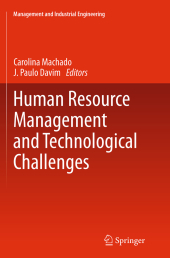 Neuerscheinungen 2016Stand: 2020-02-01 |
Schnellsuche
ISBN/Stichwort/Autor
|
Herderstraße 10
10625 Berlin
Tel.: 030 315 714 16
Fax 030 315 714 14
info@buchspektrum.de |

J. Paulo Davim, Carolina Feliciana Machado
(Beteiligte)
Human Resource Management and Technological Challenges
Herausgegeben von Machado, Carolina Feliciana; Davim, J. Paulo
Softcover reprint of the original 1st ed. 2014. 2016. vii, 170 S. 16 SW-Abb. 235 mm
Verlag/Jahr: SPRINGER, BERLIN; SPRINGER INTERNATIONAL PUBLISHING 2016
ISBN: 3-319-34406-4 (3319344064)
Neue ISBN: 978-3-319-34406-5 (9783319344065)
Preis und Lieferzeit: Bitte klicken
Benefiting researchers and graduate students involved in mathematical logic, this book opens with a detailed theory of reactive Kripke semantics in the first seven chapters, followed by five chapters demonstrating applications in a variety of areas.
This book focuses on the challenges and changes that new technologies bring to human resources (HR) of modern organizations. It examines the technological implications of the last changes taking place and how they affect the management and motivation of human resources belonging to these organizations. It looks for ways to understand and perceive how organizational HR, individually and as a team, conceptualize, invent, adapt, define and use organizational technology, as well as how they are constrained by features of it. The book provides discussion and the exchange of information on principles, strategies, models, techniques, methodologies and applications of human resources management and technological challenges and changes in the field of industry, commerce and services.
HRM politics and practices.- Technological impact and consequences in HRM.- Communication, participation and involvement.- Equal opportunities.- Health and safety.- How work is changing.- Matching human and technological needs.- Motivating people in a technological environment.- Knowledge management in the new technologies era.- Developing leadership skills.- Global management.- Matching human and technological needs.- Strategic management.- Innovation and change.- Entrepreneurship.- Employee motivation.- Learning skills and styles in technology innovation.- Training effectiveness.


